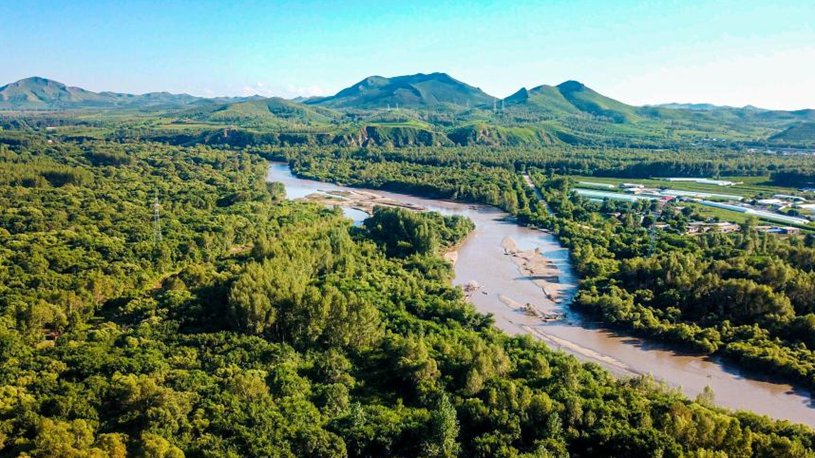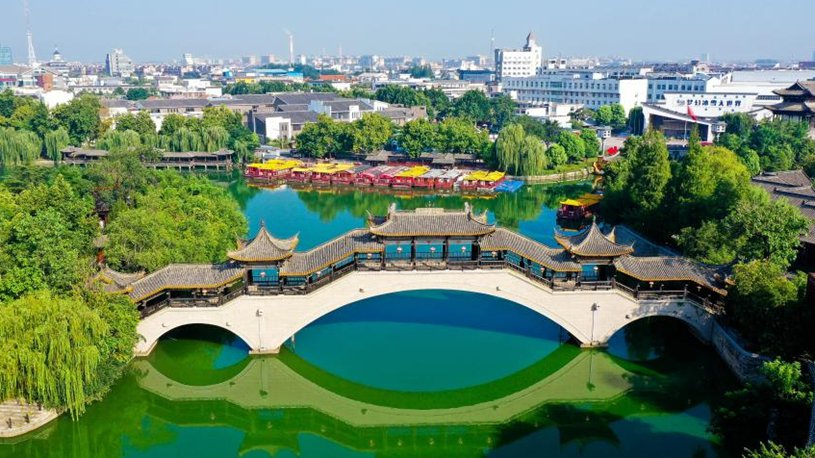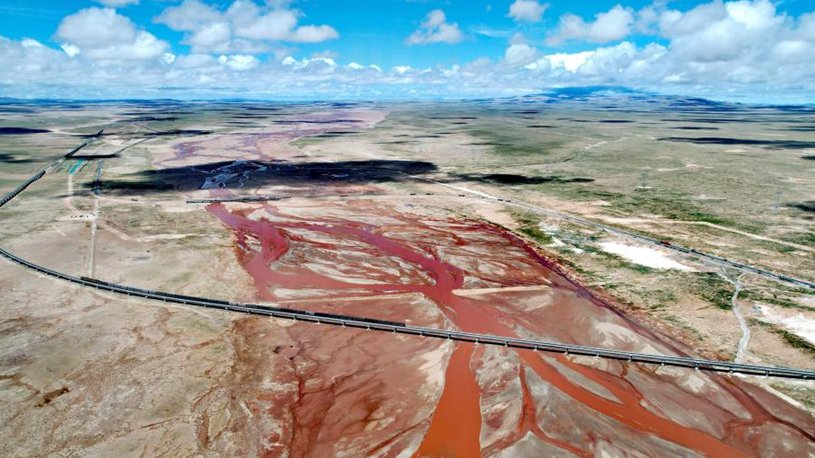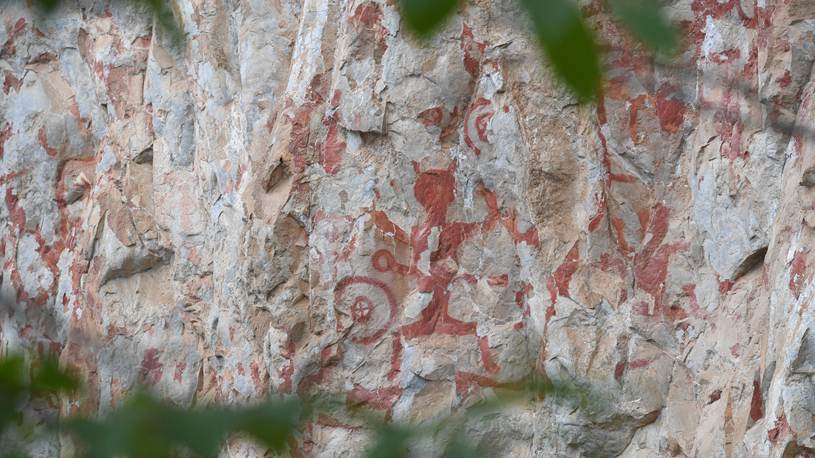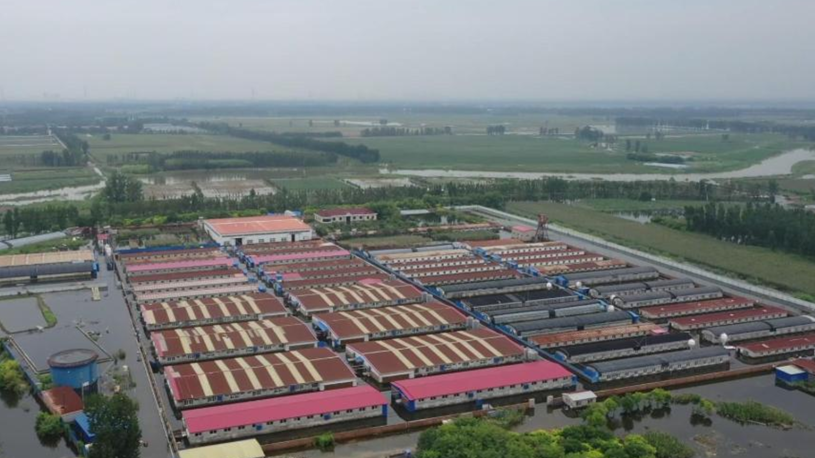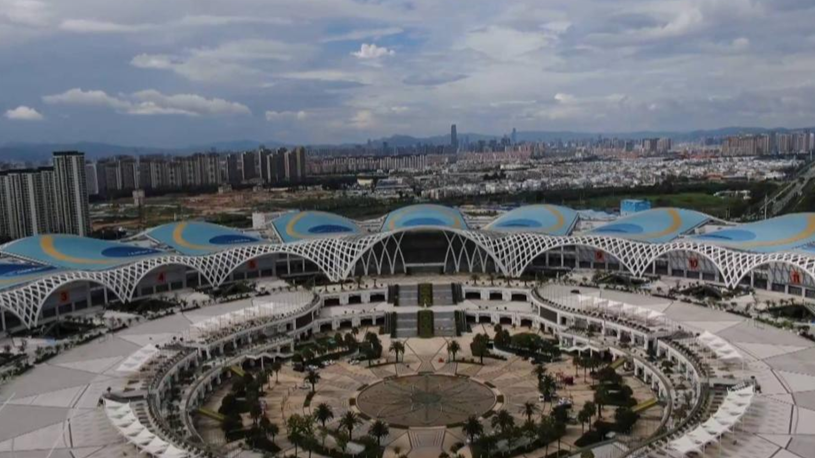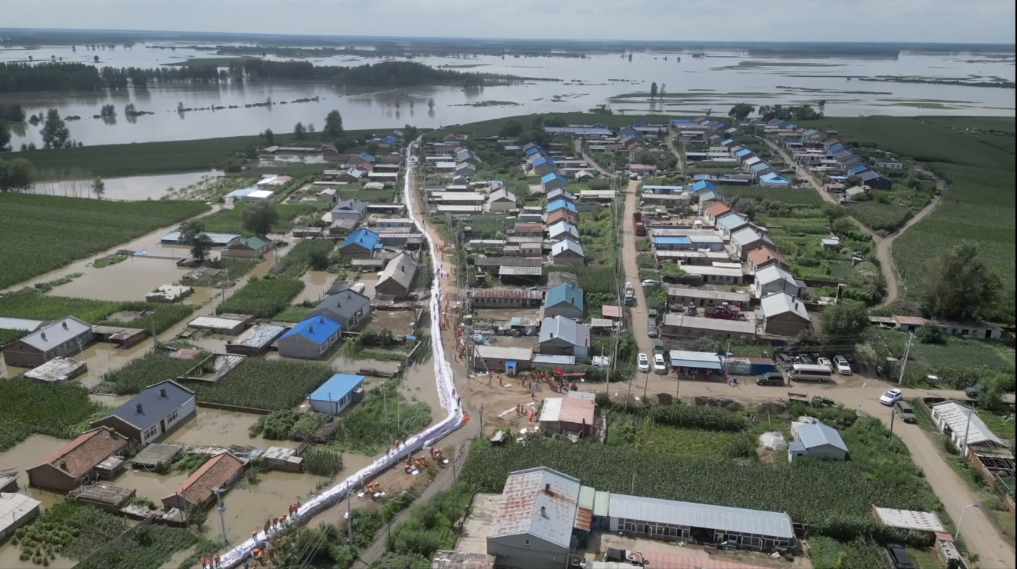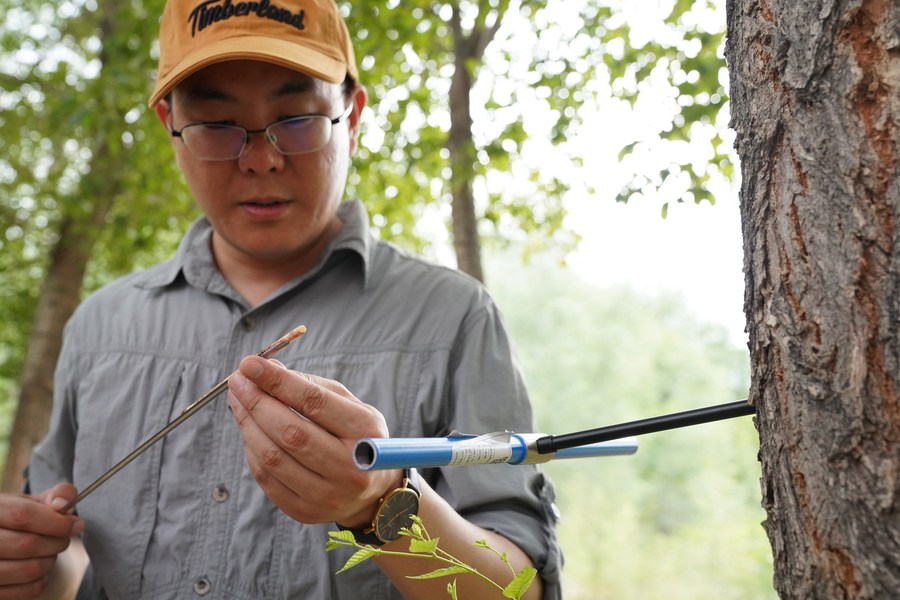
A scientist drills a tree core to obtain samples during the third comprehensive scientific
URUMQI, Aug. 15 (Xinhua) -- In the Tianshan Mountains in northwest China's Xinjiang Uygur Autonomous Region, a team of researchers was giving trees physical examinations. In this process a stream of water was released from the core of a poplar tree, when it was drilled into by the researchers.
"This is a mechanism by which poplars adapt to drought. They absorb a lot of water when it's wet and store it inside their bodies to reuse it in times of extreme drought," explained Jia Xiaoxu, who is a researcher at the Institute of Geographic Sciences and Natural Resources Research under the Chinese Academy of Sciences (CAS).
Jia is the leader of a project
Jia led his team in drilling and collecting samples from hundreds of tree cores. By observing the color and smell of the liquid that came out of the cores, they were able to make a
The researchers then brought the samples from the sick trees to the lab to do "blood tests" to further analyze what kind of diseases the trees were infected with.
"Our survey has found that the overall condition of Xinjiang's protection forests is relatively good at present, thanks to ecological water replenishment through diffuse or drip irrigation," Jia said.
Like Jia, many scientists are participating in the ongoing comprehensive scientific
According to the Xinjiang Institute of Ecology and Geography of the CAS, the organizer of the
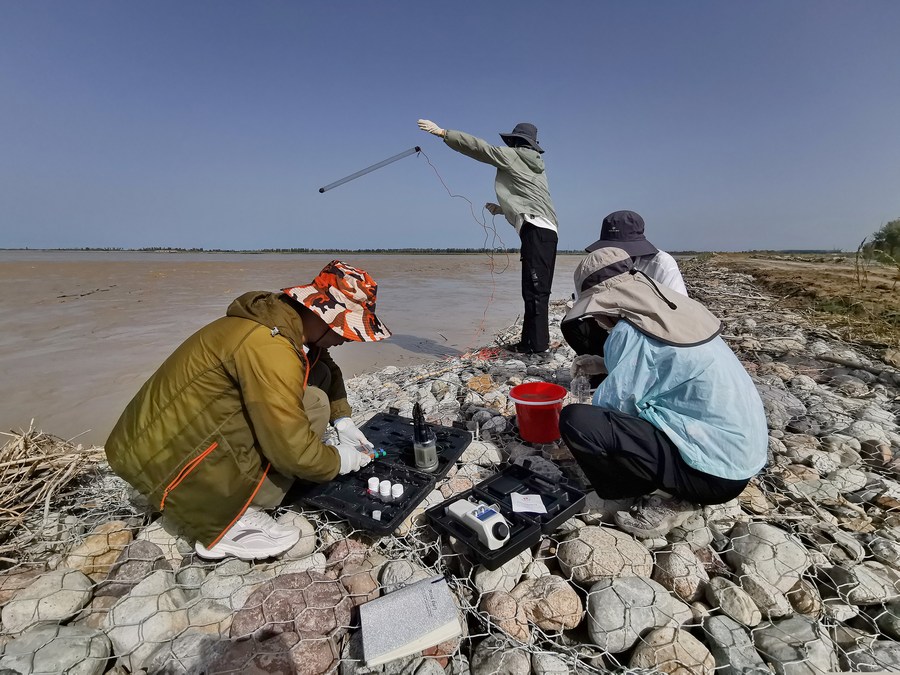
Scientists conduct rapid field-testing and sampling of surface water at the headwaters of the Tarim River during the third comprehensive scientific
The institute indicated that the scientific
"The third comprehensive scientific
New technological means, such
The scientific
Xu Jiliang, dean of the school of ecology and nature conservation at Beijing Forestry University, is leading a team conducting a survey of biodiversity and biological resources of special resistance in the Turpan-Hami basin.
This survey has constructed a library of ecological restoration species for mines, oil wells and other energy bases, which will help repair degraded ecosystems, improve the regeneration capacity of natural resources, and realize the sustainable improvement and restoration of the ecological environment.
"The scientific research data and experience we have accumulated can
The third comprehensive scientific
"The ecosystems of Xinjiang are not closed, and they are distributed across national boundaries, so the scientific
Zhang said that scientists are also conducting
"Thanks to this


